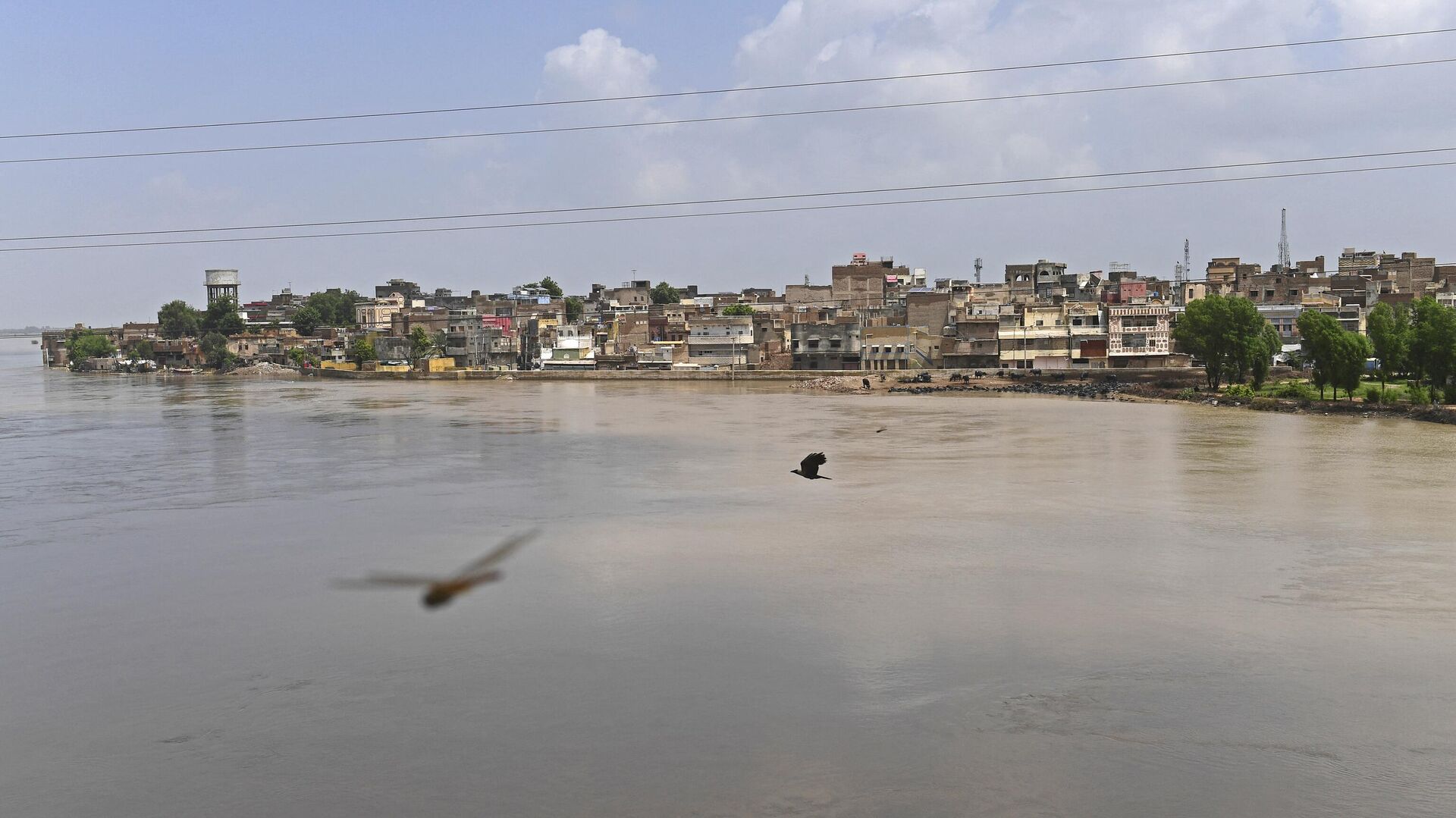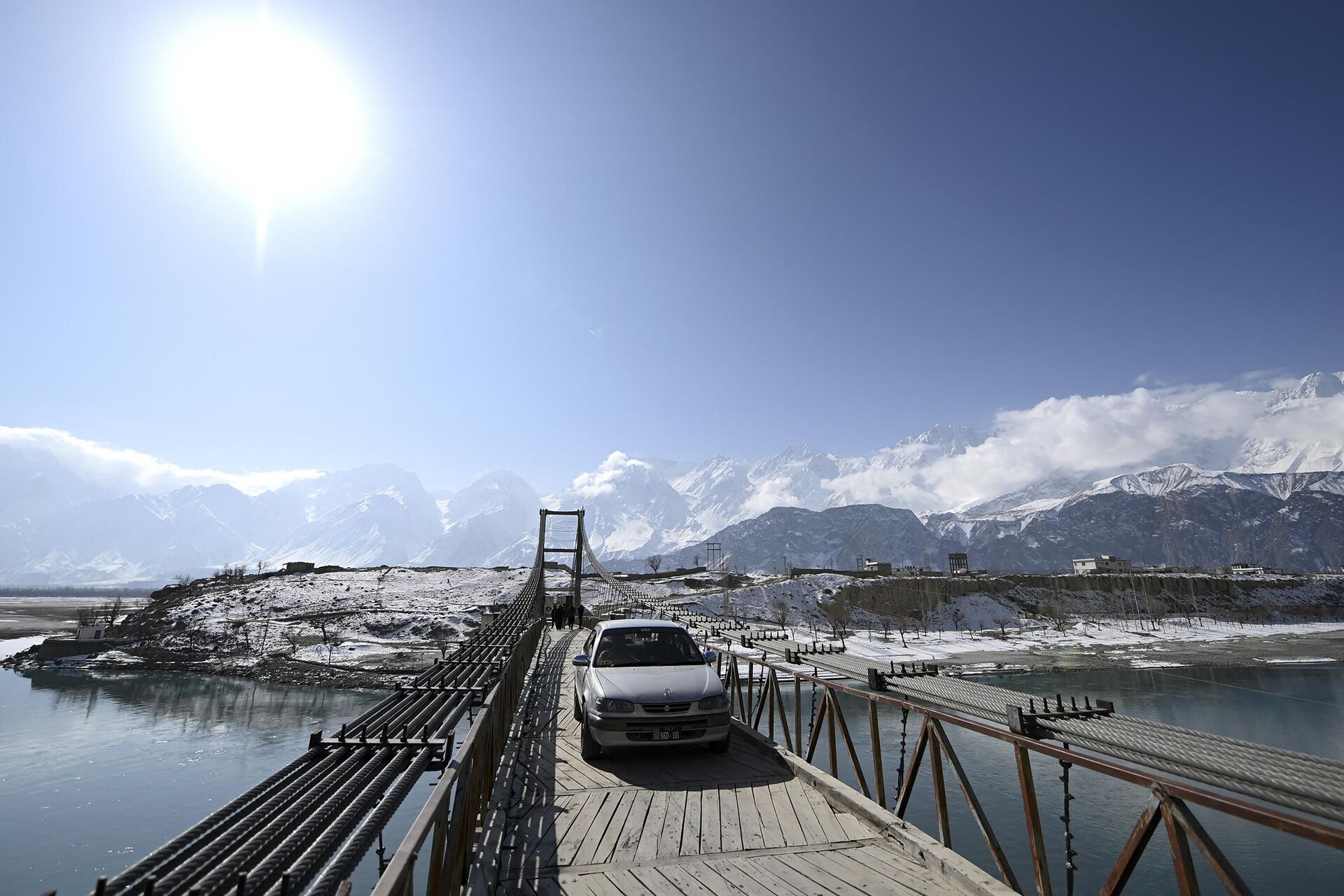https://sputniknews.in/20230128/pakistan-opposes-indias-notice-to-modify-indus-water-treaty-673997.html
Pakistan Opposes India's Notice to Modify Indus Water Treaty
Pakistan Opposes India's Notice to Modify Indus Water Treaty
Sputnik India
The 1960 accord stipulates water-sharing arrangements in the Indus River and its tributaries between New Delhi and Islamabad.
2023-01-28T16:18+0530
2023-01-28T16:18+0530
2023-01-28T16:18+0530
world news
india
pakistan
indus river
indus water treaty (iwt)
world bank
https://cdn1.img.sputniknews.in/img/07e7/01/1c/674555_0:161:3071:1888_1920x0_80_0_0_6ef6bc18a26dd60c3436560c4a03e81e.jpg
Pakistan on Friday opposed modifications to the Indus Water Treaty (IWT) at the Permanent Court of Arbitration, Hague.The motion comes just a few days after India reportedly asked the Pakistani side to change a six-decade water-sharing agreement in view of Islamabad's "intransigence" over the pact's dispute redressal mechanism relating to cross-border rivers.New Delhi served Pakistan with a notice to modify the treaty in a bid to resolve the long-running dispute within 90 days.The two sides remain at odds over the construction of India's hydroelectric projects on the Indus tributaries, Jhelum and Chenab.Pakistan's main concern remains that India's hydropower dams would cut the water flow on the river, as the tributaries are a primary source of irrigation and household use in the country.In 2015, Pakistan reportedly raised the issue of India's 330MW Kishenganga hydroelectric project on the Jhelum river and 850MW Ratle hydroelectric project on the Chenab River. The matter has remained unresolved since 2016, when the World Bank paused the initiation and asked the two countries to find an amicable solution to the problem.However, last year in October, the World Bank appointed neutral experts Michel Lino and Sean Murphy, as Chairman of the Court of Arbitration and convened meetings with Indian and Pakistani officials in November to "hand over" the process.Reports suggested that India asked Pakistan to change the Indus Waters Treaty by barring third parties from intervening in disputes.Under IWT, all the waters of the eastern rivers - Sutlej, Beas, and Ravi - amounting to around 33 million acre-feet (MAF) are allocated to India for unrestricted use.The waters of western rivers - Indus, Jhelum, and Chenab - amounting to around 135 MAF annually have been assigned mainly to Pakistan. However, India can generate power on western rivers, subject to specific criteria for design and operation.
india
pakistan
indus river
Sputnik India
feedback.hindi@sputniknews.com
+74956456601
MIA „Rossiya Segodnya“
2023
Deexa Khanduri
https://cdn1.img.sputniknews.in/img/07e6/0c/13/138923_52:0:533:481_100x100_80_0_0_cadf23d341691fc65ff2b22fd1afe584.jpg
Deexa Khanduri
https://cdn1.img.sputniknews.in/img/07e6/0c/13/138923_52:0:533:481_100x100_80_0_0_cadf23d341691fc65ff2b22fd1afe584.jpg
News
en_IN
Sputnik India
feedback.hindi@sputniknews.com
+74956456601
MIA „Rossiya Segodnya“
Sputnik India
feedback.hindi@sputniknews.com
+74956456601
MIA „Rossiya Segodnya“
Deexa Khanduri
https://cdn1.img.sputniknews.in/img/07e6/0c/13/138923_52:0:533:481_100x100_80_0_0_cadf23d341691fc65ff2b22fd1afe584.jpg
indus water treaty, india notice to pakistan, rattle hydro electric projects, heps, jhelum river, indus river
indus water treaty, india notice to pakistan, rattle hydro electric projects, heps, jhelum river, indus river
Pakistan Opposes India's Notice to Modify Indus Water Treaty
Deexa Khanduri
Sputnik correspondent
The 1960 accord stipulates water-sharing arrangements in the Indus River and its tributaries between New Delhi and Islamabad.
Pakistan on Friday opposed modifications to the Indus Water Treaty (IWT) at the Permanent Court of Arbitration, Hague.
The motion comes just a few days after India reportedly asked the Pakistani side to change a six-decade
water-sharing agreement in view of Islamabad's "intransigence" over the pact's dispute redressal mechanism relating to cross-border rivers.
New Delhi served Pakistan with a notice to modify the treaty in a bid to resolve the long-running dispute within 90 days.
"Such stories are misleading. The IWT cannot be unilaterally modified. This is an attempt to divert attention from the ongoing proceedings at the Permanent Court of Arbitration under the Indus Waters Treaty," a statement issued by Pakistan reads.
The two sides remain at odds over the construction of India's hydroelectric projects on the Indus tributaries, Jhelum and Chenab.
Pakistan's main concern remains that India's hydropower dams would cut the water flow on the river, as the tributaries are a primary source of irrigation and household use in the country.
In 2015, Pakistan reportedly raised the issue of India's 330MW Kishenganga hydroelectric project on the Jhelum river and 850MW Ratle hydroelectric project on the Chenab River.
The matter has remained unresolved since 2016, when the World Bank paused the initiation and asked the two countries to find an amicable solution to the problem.
However, last year in October, the World Bank appointed neutral experts Michel Lino and Sean Murphy, as Chairman of the Court of Arbitration and convened meetings with Indian and Pakistani officials in November to "hand over" the process.
Reports suggested that India asked Pakistan to change the Indus Waters Treaty by barring third parties from intervening in disputes.
Under IWT, all the waters of the eastern rivers - Sutlej, Beas, and Ravi - amounting to around 33 million acre-feet (MAF) are allocated to India for unrestricted use.
The waters of western rivers - Indus, Jhelum, and Chenab - amounting to around 135 MAF annually have been assigned mainly to Pakistan. However, India
can generate power on western rivers, subject to specific criteria for design and operation.



